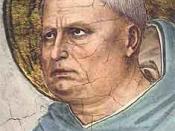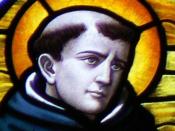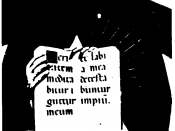Divine Command Theory's essential premise is that whatever God commands is good, and whatever he prohibits is evil; nothing else is good or evil. Many objections against this theory occurred over time, including one by Thomas Aquinas. Aquinas had an unusual position, since he opposed this theory while adhering to the traditional monotheistic conception of God, i.e. the perfect entity with the attributes of omnipotence, omniscience and omni-benevolence. In this paper, I will first summarize the Divine Command Theory, abbreviated as DCT. Then I will reconstruct Aquinas' argument against it, which advances an idea of what I will refer to as "God with Intellect". Subsequently, I will take the standpoint of DCT and try to challenge Aquinas by questioning whether his argument of "God with Intellect" negates the traditional power notion, namely omnipotence, of God. Then, I will turn back to Aquinas and present his reply to DCT.
His reply will be if God is to be genuinely omni-benevolent, he must have perfect intellect, which stems from his omniscience. At that point of the dispute, it will be evident that there is a clash of fundamental beliefs between DCT and Aquinas, regarding God's power and goodness. DCT sets its focus on God's unalterable omnipotence, whereas Aquinas emphasizes God's omni-benevolence, whilst moderating the traditional definition of omnipotence. In conclusion, I will argue that Aquinas' argument is more applicable to our world, for it attempts to compromise God and ethics in a rather plausible way; whereas DCT seems to be overwhelmed by God's power, may He be exalted, thus letting his omnipotence outweigh his omni-benevolence, and thereby the fixed notion of Goodness.
Divine Command Theory was postulated mainly by three authors, namely Gerson, Biel and Luther. Gerson explicitly states in his writing On the Consolation of Philosophy that "God...


